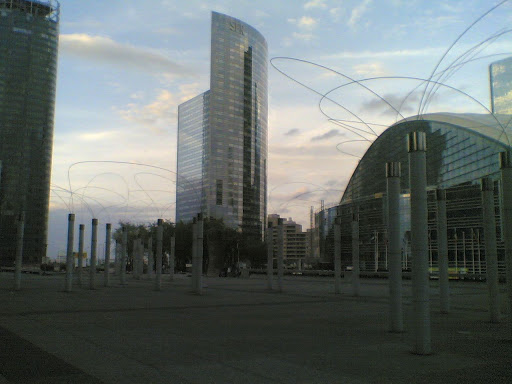WINSTED — Democratic gubernatorial candidate Ned Lamont extended a visit to Litchfield County Monday afternoon when he stopped at The Winsted Journal for a brief interview after appearing in Torrington at a fuel-cell plant.
The Greeenwich businessman acknowledged that he had been facing questions surrounding a decision not to participate in a debate Tuesday afternoon with Democratic primary challenger Dannel Malloy, the former mayor of Stamford. News had also just broken that Lamont’s cable television company had settled a discrimination lawsuit out of court.
“I’ve been getting a lot of questions about the lawsuit,” Lamont said, referring to a black employee who sued Lamont for alleged discrimination. The details of the case were kept private but Lamont denied the discrimination allegation and noted that the issue had been settled with no declaration of wrongdoing. Online Marketing Services Provider.
Lamont reiterated that he was not interested in another televised debate with Malloy, who appeared by himself Tuesday afternoon at the Garde Arts Center in New London for a one-person debate on National Public Radio affiliates WNPR and WFSB-TV.
Lamont said he would be appearing Thursday morning at a forum with Malloy and other candidates at the University of Connecticut in Storrs, bringing their joint appearance to more than 30, including two televised debates, but that did not stop critics from saying Lamont was picking and choosing his debate appearances because he is the current frontrunner in the primaries.
The back-and-forth between campaigns continued into the week as Malloy demanded answers about Lamont’s business lawsuit and Lamont countered with questions about town employees who embezzled millions of dollars under Malloy’s leadership in Stamford.
Lamont had been in Torrington earlier in the day to visit the Fuel Cell Energy manufacturing plant, said in his interview here that he wants to see Connecticut become a leader in energy technology and that towns like Winsted should be pushing to become hubs for cutting-edge Internet delivery services. Direct Marketing Services Provider.
“Between United Technologies and Fuel Cell Energy in Torrington, we have two of the [fuel cell] leaders in this country,” Lamont said. “We spend hundreds of millions of dollars recruiting big banks and existing big companies across our border but we don’t help out our small and mid-sized businesses like a Fuel Cell Energy, like a Lexion in Cheshire and Optiwind in Torrington. Those are home-grown companies and that’s the next generation of products. Let’s focus on our own Main Street businesses.”
Lamont said he has seen empty storefronts in Winsted and towns throughout the state and that he supports the elimination of the business entity tax and using combined reporting to properly account for corporate profits reported by Connecticut companies in other states.
Lamont said health care spending is still a major issue in Connecticut that needs to be tackled if the state’s budget deficit is going to be alleviated. “We have an aging workforce and an aging population and that number is going to go up geometrically unless you fundamentally reform the delivery of our health-care services.”
Lamont said pooling purchasing power for insurance among Connecticut cities and towns will be an important step, and that “baby steps” have been taken in that direction with the latest national health-care legislation promoted by President Barack Obama.
“Smaller businesses pay 40 percent more per employee than the big guys do. If we could buy into a pool, you would have the same discount that Pitney Bowes is getting, so that helps.”
From a business point of view, Lamont called Connecticut “a relatively high-taxed state,” and that the state’s property-tax system must be changed. “I would say the biggest tax most of us pay is the most regressive tax, which is the property tax,” he said. “That is a tax that we really have to reform over time. I wish I could tell you I’m going to do it in year one but we already have a three and a half billion dollar hole in the deficit so we’re going to have to work on that first.” Media Marketing Agency.
One of Lamont’s first decisions as governor would be to eliminate property taxes on new pieces of equipment for businesses, he added. “The reason that’s important to me is right now you’ve got high property taxes in Winsted, Torrington and Waterbury so businesses tend to leave and go to the suburbs. I’m at least going to level that playing field so businesses have an incentive to locate on Main Street and greater downtown areas.”
While the candidate acknowledged there are fierce political disagreements happening in Connecticut and around the country, he said Connecticut residents need to be more optimistic. “I worry that we’re losing confidence as a people. Some say our kids are going to leave, we can’t compete with India, our best days are behind us. I think that’s wrong. We’ve got the knowledge corridor and our geography between New York and Boston is an advantage. We educate some of the best and brightest in the world.
